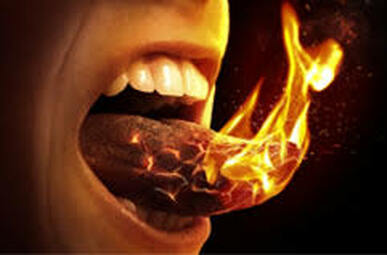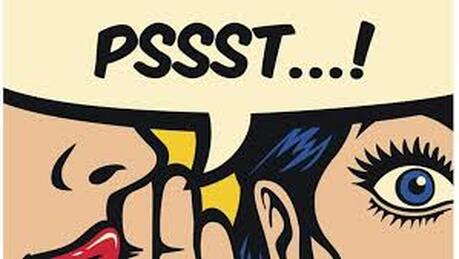
כי־ביום הזה יכפר עליכם לטהר אתכם מכל חטאתיכם לפני יהוה תטהרו
For on this day, atonement will be made for you to purify you; you will be clean before Adonai from all your sins.
(Lev 16:30 CJB)
In Hebrew, the verb “to atone” is synonymous with the verb “to cover.” As such, the “atonement” of a transgression refers to the “covering” of a transgression. This presents a very important point in our theological understanding of divine atonement. If transgressions are “covered”, it does not mean that they are deleted; they are merely covered. Messiah is often called “מגן ישענו/ Maguen Yisheinu”/the Shield of our Salvation”. We see this in the following statements from the mouth of King David.
You give me your shield, which is salvation; your answers make me great.
(2Sa 22:36 CJB)
"You give me your shield, which is salvation, your right hand holds me up, your humility makes me great.
(Psa 18:35 (18:36 CJB))
The idea is that, whereas we are disobedient sinners, the obedient righteous Messiah covers us like a shield from HaShem's wrath. As a result, all HaShem sees in us is the Messiah who covers us. The Light of Messiah in fact blinds HaShem to our transgressions. And in His mercy and compassion, all that HaShem chooses to see in us is the favor He has given Messiah.
Our sins are not deleted, they can never be (Psalm 51:3). What is done is done and can never be undone. Our words also are like the proverbial toothpaste that cannot be put back in the tube: they can never be unsaid. As such, in the days of the Tabernacle and the Temple, the levitical service served as a “covering” of our transgressions.
It is easy for one to take the forgiveness that we are allotted for granted, but I’d like to share a story I heard one time from a man who was sharing something about his early childhood. Here is what he said,
During early childhood I had a fiery temper which often caused me to say or do unkind things.
One day, after an argument had sent one of my playmates home in tears, my father told me that for each thoughtless, mean thing I did he would drive a nail into our gatepost. Each time I did a kindness or a good deed, one nail would be withdrawn.
Months passed. Each time I entered our gate, I was reminded of the reasons for those ever-increasing nails, until finally, getting them out became a challenge.
At last the wished-for day arrived--only one more nail! As my father withdrew it I danced around proudly exclaiming, "See, Daddy, the nails are all gone."
Father gazed intently at the post as he thoughtfully replied, "Yes, the nails are gone--but the scars remain."
Thus it is, with the offenses that we do against others, as well as those that we do against HaShem.
There are offenses that we only do against HaShem, but all offenses against man made in the image of HaShem are also offenses against HaShem. About this the sages say (Yoma 85b) that whereas Yom Kippur provides atonement/covering between HaShem and man, atonement/covering between man and man can only happen when man forgives us. That is reminiscent of what Yeshua teaches us when He says,
For if you forgive others their offenses, your heavenly Father will also forgive you; but if you do not forgive others their offenses, your heavenly Father will not forgive yours.
(Mat 6:14-15 CJB)
This causes a serious problem. We all know of people who are hyper-sensitive and who very easily get offended (maybe we are one of those?). There are also some who may say they forgive you, but keep resentment deep inside. As such, have they really forgiven us? If they don’t we are in a serious fix with HaShem!
The best way in order to avoid this situation is to make sure that we do not offend people. We must take it upon ourselves to be sensitive enough to others so that we don’t need their forgiveness, especially from those who have a hard time . I know it’s a tall order, but we are called to a higher calling, a calling which requires a higher righteousness. Our dear Master and Rabbi Yeshua teaches us that. He says to us,
Unless your righteousness is far greater than that of the Torah-teachers and P'rushim, you will certainly not enter the Kingdom of Heaven!
He then gave some examples,
"You have heard that our fathers were told, 'Do not murder,' and that anyone who commits murder will be subject to judgment. But I tell you that anyone who nurses anger against his brother will be subject to judgment; that whoever calls his brother, 'You good-for-nothing!' will be brought before the Sanhedrin; that whoever says, 'Fool!' incurs the penalty of burning in the fire of Gei-Hinnom!
A tall order indeed. Yeshua sets the bar even higher by saying,
So if you are offering your gift at the Temple altar and you remember there that your brother has something against you, leave your gift where it is by the altar, and go, make peace with your brother. Then come back and offer your gift.
Sometimes we cannot help someone from being upset with us. We may have never meant the offense, and maybe we feel that they are hyper-sensitive. Nevertheless Yeshua says that if someone is mad at us for something, our service to Him is invalid. We must seek true forgiveness from that person. As such Yeshua gives us some pointers on how to accomplish that. He says,
If someone sues you, come to terms with him quickly, while you and he are on the way to court; or he may hand you over to the judge, and the judge to the officer of the court, and you may be thrown in jail! Yes indeed! I tell you, you will certainly not get out until you have paid the last penny.
(Mat 5:20-26 CJB)
We are in fact the ones who pay the penalty for someone being mad at us. That is exactly what the sages refer to when they say in Yoma 85b that, whereas Yom Kippur provides atonement/covering between HaShem and man, atonement/covering between man and man can only happen when man forgives us.
It is therefore a good conclusion that the best way to avoid this situation is to live in a way that we try our “bestest” to not offend people. If we are to get HaShem’s forgiveness, it is imperative that we take it upon ourselves to be sensitive to others, so that we don’t need the forgiveness from those who have a hard time.
AS WE ENTER OUR POST-PASSOVER NEW ‘CULTURE”, MAY WE REMEMBER THAT OUR PESACH LAMB HAS BEEN SACRIFICED.
MAY WE THEREFORE LIVE A LIFE AWAY FROM THE LEAVEN OF WICKEDNESS AND EVIL, BUT WITH A LIFE OF PURITY AND TRUTH. (Paraphrase on 1 Cor 5:7-8)
Through immersion into his death we were buried with him; so that just as, through the glory of the Father, the Messiah was raised from the dead, likewise we too might live a new life. For if we have been united with him in a death like his, we will also be united with him in a resurrection like his. We know that our old self was put to death on the execution-stake with him, so that the entire body of our sinful propensities might be destroyed, and we might no longer be enslaved to sin.
(Rom 6:4-6 CJB)
כי־ביום הזה יכפר עליכם לטהר אתכם מכל חטאתיכם לפני יהוה תטהרו
For on this day, atonement will be made for you to purify you; you will be clean before Adonai from all your sins.
(Lev 16:30 CJB)
In Hebrew, the verb “to atone” is synonymous with the verb “to cover.” As such, the “atonement” of a transgression refers to the “covering” of a transgression. This presents a very important point in our theological understanding of divine atonement. If transgressions are “covered”, it does not mean that they are deleted; they are merely covered. Messiah is often called “מגן ישענו/ Maguen Yisheinu”/the Shield of our Salvation”. We see this in the following statements from the mouth of King David.
You give me your shield, which is salvation; your answers make me great.
(2Sa 22:36 CJB)
"You give me your shield, which is salvation, your right hand holds me up, your humility makes me great.
(Psa 18:35 (18:36 CJB))
The idea is that, whereas we are disobedient sinners, the obedient righteous Messiah covers us like a shield from HaShem's wrath. As a result, all HaShem sees in us is the Messiah who covers us. The Light of Messiah in fact blinds HaShem to our transgressions. And in His mercy and compassion, all that HaShem chooses to see in us is the favor He has given Messiah.
Our sins are not deleted, they can never be (Psalm 51:3). What is done is done and can never be undone. Our words also are like the proverbial toothpaste that cannot be put back in the tube: they can never be unsaid. As such, in the days of the Tabernacle and the Temple, the levitical service served as a “covering” of our transgressions.
It is easy for one to take the forgiveness that we are allotted for granted, but I’d like to share a story I heard one time from a man who was sharing something about his early childhood. Here is what he said,
During early childhood I had a fiery temper which often caused me to say or do unkind things.
One day, after an argument had sent one of my playmates home in tears, my father told me that for each thoughtless, mean thing I did he would drive a nail into our gatepost. Each time I did a kindness or a good deed, one nail would be withdrawn.
Months passed. Each time I entered our gate, I was reminded of the reasons for those ever-increasing nails, until finally, getting them out became a challenge.
At last the wished-for day arrived--only one more nail! As my father withdrew it I danced around proudly exclaiming, "See, Daddy, the nails are all gone."
Father gazed intently at the post as he thoughtfully replied, "Yes, the nails are gone--but the scars remain."
Thus it is, with the offenses that we do against others, as well as those that we do against HaShem.
There are offenses that we only do against HaShem, but all offenses against man made in the image of HaShem are also offenses against HaShem. About this the sages say (Yoma 85b) that whereas Yom Kippur provides atonement/covering between HaShem and man, atonement/covering between man and man can only happen when man forgives us. That is reminiscent of what Yeshua teaches us when He says,
For if you forgive others their offenses, your heavenly Father will also forgive you; but if you do not forgive others their offenses, your heavenly Father will not forgive yours.
(Mat 6:14-15 CJB)
This causes a serious problem. We all know of people who are hyper-sensitive and who very easily get offended (maybe we are one of those?). There are also some who may say they forgive you, but keep resentment deep inside. As such, have they really forgiven us? If they don’t we are in a serious fix with HaShem!
The best way in order to avoid this situation is to make sure that we do not offend people. We must take it upon ourselves to be sensitive enough to others so that we don’t need their forgiveness, especially from those who have a hard time . I know it’s a tall order, but we are called to a higher calling, a calling which requires a higher righteousness. Our dear Master and Rabbi Yeshua teaches us that. He says to us,
Unless your righteousness is far greater than that of the Torah-teachers and P'rushim, you will certainly not enter the Kingdom of Heaven!
He then gave some examples,
"You have heard that our fathers were told, 'Do not murder,' and that anyone who commits murder will be subject to judgment. But I tell you that anyone who nurses anger against his brother will be subject to judgment; that whoever calls his brother, 'You good-for-nothing!' will be brought before the Sanhedrin; that whoever says, 'Fool!' incurs the penalty of burning in the fire of Gei-Hinnom!
A tall order indeed. Yeshua sets the bar even higher by saying,
So if you are offering your gift at the Temple altar and you remember there that your brother has something against you, leave your gift where it is by the altar, and go, make peace with your brother. Then come back and offer your gift.
Sometimes we cannot help someone from being upset with us. We may have never meant the offense, and maybe we feel that they are hyper-sensitive. Nevertheless Yeshua says that if someone is mad at us for something, our service to Him is invalid. We must seek true forgiveness from that person. As such Yeshua gives us some pointers on how to accomplish that. He says,
If someone sues you, come to terms with him quickly, while you and he are on the way to court; or he may hand you over to the judge, and the judge to the officer of the court, and you may be thrown in jail! Yes indeed! I tell you, you will certainly not get out until you have paid the last penny.
(Mat 5:20-26 CJB)
We are in fact the ones who pay the penalty for someone being mad at us. That is exactly what the sages refer to when they say in Yoma 85b that, whereas Yom Kippur provides atonement/covering between HaShem and man, atonement/covering between man and man can only happen when man forgives us.
It is therefore a good conclusion that the best way to avoid this situation is to live in a way that we try our “bestest” to not offend people. If we are to get HaShem’s forgiveness, it is imperative that we take it upon ourselves to be sensitive to others, so that we don’t need the forgiveness from those who have a hard time.
AS WE ENTER OUR POST-PASSOVER NEW ‘CULTURE”, MAY WE REMEMBER THAT OUR PESACH LAMB HAS BEEN SACRIFICED.
MAY WE THEREFORE LIVE A LIFE AWAY FROM THE LEAVEN OF WICKEDNESS AND EVIL, BUT WITH A LIFE OF PURITY AND TRUTH. (Paraphrase on 1 Cor 5:7-8)
Through immersion into his death we were buried with him; so that just as, through the glory of the Father, the Messiah was raised from the dead, likewise we too might live a new life. For if we have been united with him in a death like his, we will also be united with him in a resurrection like his. We know that our old self was put to death on the execution-stake with him, so that the entire body of our sinful propensities might be destroyed, and we might no longer be enslaved to sin.
(Rom 6:4-6 CJB)


 RSS Feed
RSS Feed